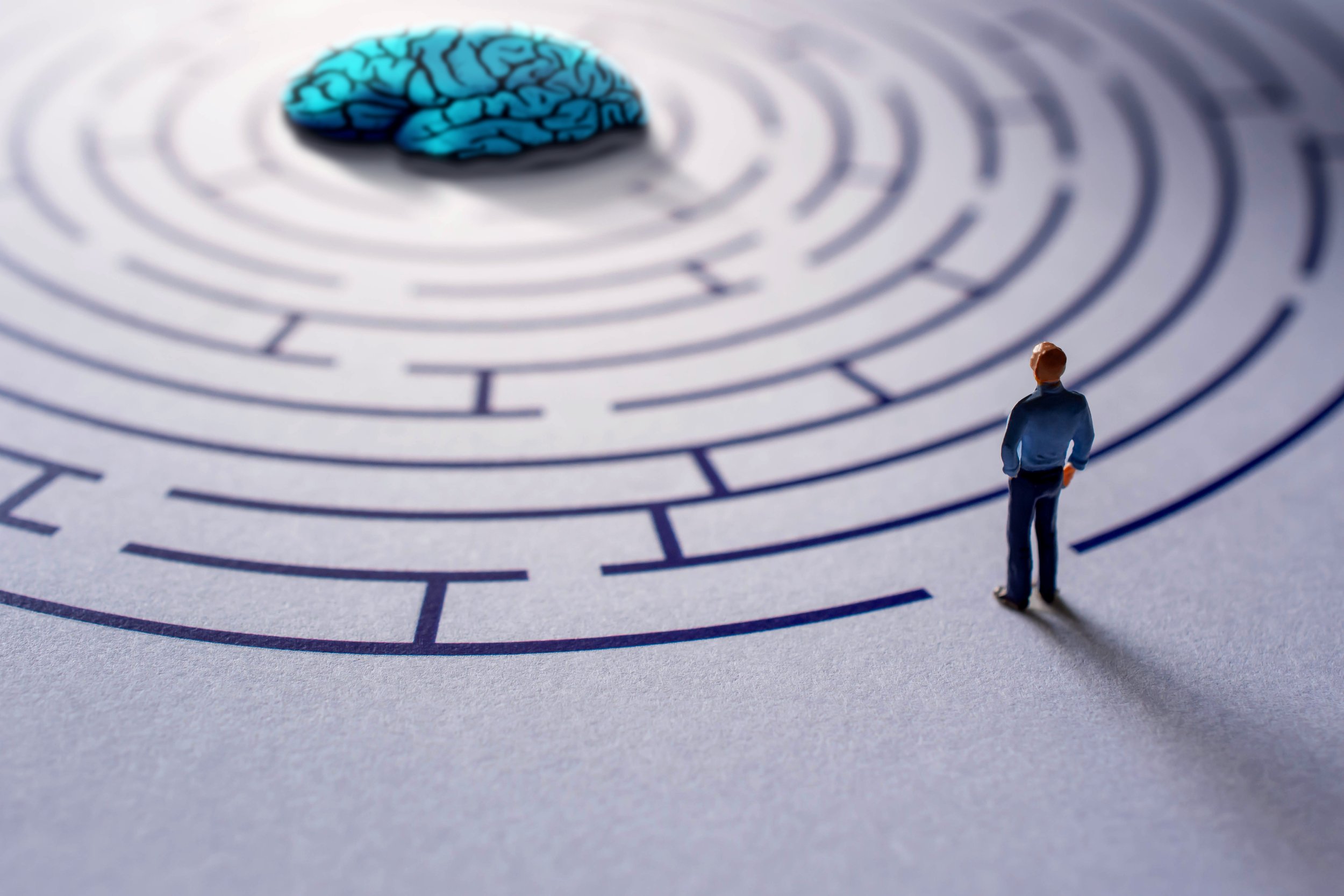Welcome to My Blog Page.

Mindfulness Made Simple: A Therapist’s Guide to Being Present
In our fast-paced world, it’s easy to get lost in a constant cycle of stress, worries, and endless to-do lists. Have you ever driven somewhere and realized you don’t remember parts of the trip? Or found yourself eating a meal but barely tasting it? This is what happens when we live on autopilot, disconnected from the present moment.
Mindfulness is the practice of bringing your full attention to the present—without judgment. It’s not about clearing your mind completely but about noticing your thoughts, feelings, and surroundings with curiosity and kindness.
Why Mindfulness Matters
Many people find that practicing mindfulness helps them feel more balanced, focused, and at ease. When we stay present, we spend less time caught up in worries about the past or future, allowing for greater peace of mind. Mindfulness can also be a valuable tool in managing anxiety, stress, and emotional well-being, making it a helpful practice in both everyday life and therapy.
Simple Ways to Practice Mindfulness
The good news? You don’t need fancy equipment, hours of meditation, or a complete lifestyle overhaul to benefit from mindfulness. Here are some easy ways to start:

Secure Love: Signs of a Secure Partner & How to Become One
When it comes to relationships, security isn’t just about knowing where you stand—it’s about feeling safe, valued, and deeply connected. A secure partner creates a space where love isn’t a rollercoaster of highs and lows but a steady, grounding presence in your life.
So, what does a secure partner look like? And how can you become one? Let’s dive in.
Signs of a Secure Partner
Consistent & Reliable – They show up when they say they will, both physically and emotionally. No hot-and-cold behavior, no disappearing acts.
Communicates Openly – They express their thoughts and feelings clearly and respectfully, without passive-aggressiveness or avoidance.
Handles Conflict with Maturity – Disagreements are inevitable, but a secure partner doesn’t turn conflict into a battle. They listen, validate, and work toward solutions.
Encourages Independence – They love and support you, but they don’t expect to be your everything. They have their own life, and they want you to have yours, too.
Apologizes & Takes Responsibility – No deflecting, blaming, or minimizing. A secure partner owns their mistakes and actively works to do better.
Creates Emotional Safety – You don’t have to walk on eggshells around them. You know you can be vulnerable without fear of being judged, dismissed, or ridiculed.
Loves Without Conditions – Their care isn’t based on whether you "earn" it. They accept you as you are, while also encouraging growth.
How to Cultivate Secure Love
Not everyone starts with a secure attachment style, but the good news? Security can be built. Here’s how:

Healing Isn’t Linear: What Real Progress Looks Like in Therapy
We love a good before-and-after story. The kind where someone hits rock bottom, has a breakthrough moment, and suddenly their life is perfect. But let’s be real—that’s not how healing works.
Healing is messy. It’s full of highs and lows, moments of clarity followed by moments of confusion. And that’s okay. The myth of “constant progress” can actually make you feel like you’re failing when you’re not. So let’s talk about what real healing looks like—and why setbacks don’t erase your progress.
The Reality of the Healing Journey
Think of healing like a spiral staircase. You’re moving upward, but sometimes it feels like you're going in circles. You might return to old wounds or patterns, but from a different perspective, with new tools and insights.
Here’s what that might look like:
🌀 Week 1: “I feel great! I’m learning so much in therapy.”
🌀 Week 4: “Why am I still feeling anxious? Am I even making progress?”
🌀 Week 7: “I handled a tough conversation way better than I would have before!”
🌀 Week 10: “I had a rough week and fell back into old habits. I feel like I’m back at square one.”
🌀 Week 12: “Wait—just because I struggled doesn’t mean I’m back at the beginning. I’m actually handling things differently now.”
Sound familiar? That’s real progress.
Signs You’re Growing (Even If It Doesn’t Feel Like It)
✔️ You notice negative thought patterns sooner.

Beyond Self-Care: How Collective Healing Support Mental Health
Let’s be real—self-care has been marketed as bubble baths, scented candles, and solo journaling with a warm cup of tea. Don’t get me wrong, those things are great and I recommend them for my clients, but healing doesn’t happen in isolation. We aren’t meant to do this alone.
When we think about mental health, we often focus on individual healing—therapy, mindfulness, exercise, better sleep. And while those things absolutely matter, there’s a crucial piece missing from the conversation: collective healing.
Healing Isn’t Just Personal—It’s Social
Many of our struggles don’t come from within us but from the world we live in. Systemic oppression, witnessing multiples genocides, generational trauma, economic stress, and community disconnection all affect mental health. If the harm is collective, then healing must be too.
Think about it:
Have you ever felt instantly lighter after venting to a friend who truly gets it?
Or found unexpected comfort in a space where people share similar experiences?
Or realized that the weight you carry isn’t just yours, but part of something bigger?
That’s collective healing in action.
Self-Care vs. Community Care

How to Find the Right Therapist for You in 5 Simple Steps
Looking for a therapist can feel overwhelming—where do you you even start? How do you know if someone is the right fit? I hear you. With so many different types of mental health professionals, it’s important to understand what you need before diving in. Whether you’re seeking therapy for the first time or looking for a new provider, this guide will help you navigate the process.
Step 1: Understand What Kind of Support You Need
Not everyone seeking help needs the same type of professional. Let’s break down the different options:
1. Psychiatrist (M.D. or D.O.)
A medical doctor who specializes in diagnosing mental health conditions and prescribing medication.
Best for: Conditions like severe depression, bipolar disorder, schizophrenia, or anxiety disorders requiring medication management.
You may still need a therapist alongside psychiatric care for deeper emotional work.
2. Therapist (LCSW, LMHC, LPC, LMFT, PsyD, PhD)
A licensed professional who provides talk therapy in a clinical setting, typically involving diagnosis and treatment of emotional, psychological, and relational challenges.
Best for: Processing trauma, managing anxiety or depression, relationship issues, and general mental health support.
Some therapists specialize in specific methods (CBT, EMDR, Trauma-Informed, Somatic therapy) or populations (BIPOC or faith-based therapy, etc.).
3. Mental Health Coach

Therapy vs. Coaching: What’s the Difference & Which One Is Right for You?
When you're feeling stuck, overwhelmed, or ready for change, you might wonder: Do I need therapy or coaching? Both offer valuable support, but they serve different purposes.
Think of therapy as healing the past and understanding yourself deeply, while coaching is about taking action and creating the future you want. But here’s the key difference: Coaching is for everyone—therapy is not.
Let’s break it down!
What is Therapy?
Therapy (also called psychotherapy or counseling) is a regulated mental health service provided by licensed professionals, like therapists, psychologists, or social workers. It’s designed to help individuals process emotions, heal past wounds, and manage mental health challenges such as:

The Mind-Body Connection: How Mental and Physical Health Work Together
We often think of mental and physical health as separate, but they are deeply connected. The way we treat our bodies directly affects how we feel emotionally, and vice versa. Small, intentional changes in daily habits can make a big difference in our overall well-being.
Sleep: Your Brain’s Reset Button
A good night’s sleep isn’t just about feeling rested—it’s essential for mood regulation, focus, and emotional resilience. Poor sleep can lead to increased stress, anxiety, and irritability. Prioritizing a consistent sleep routine, limiting screen time before bed, and creating a calming nighttime ritual can improve both mental and physical health.
Food and Mood
What we eat fuels not only our bodies but also our brains.

Understanding Anxiety: What It Is and How to Manage It
Anxiety is a word we hear a lot, but what does it really mean? Simply put, anxiety is your body’s natural response to stress. It’s that feeling of worry, nervousness, or fear about something uncertain—whether it’s a big presentation, an upcoming event, or sometimes, for no clear reason at all.
A little anxiety is normal. It can even be helpful—it keeps us alert and motivated. But when anxiety feels overwhelming, constant, or starts interfering with daily life, it’s time to take a step back and find ways to manage it.
How Anxiety Shows Up
Anxiety doesn’t look the same for everyone. Some people experience:
✔ Racing thoughts or constant worry
✔ A tight chest, rapid heartbeat, or shortness of breath
✔ Restlessness, irritability, or difficulty concentrating
✔ Trouble sleeping or stomach discomfort
If any of these sound familiar, know that you’re not alone—and there are ways to ease these feelings.
Practical Strategies to Manage Anxiety

Why Online Therapy Might Be Exactly What You Need
Gone are the days when therapy meant sitting in an office, nervously flipping through magazines while waiting for your session to start. Now, with a click of a button, you can connect with a therapist from the comfort of your own home, or even your car. Welcome to the world of online therapy—where support meets convenience.
Does Online Therapy Actually Work?
Research shows that online therapy is

Mental Health Is for Everyone—Yes, Even You
When we hear the phrase "mental health", many of us automatically think of crisis, struggle, or something that happens to other people. But the truth is, mental health is for everyone—just like physical health.
We don’t wait until we have a broken leg to care for our bodies. We stretch, hydrate, exercise, and see doctors for checkups. Why should mental health be any different? Seeking therapy or mental health coaching isn’t a sign of weakness or failure—it’s a sign of taking care of yourself.
Yet, stigma still lingers. People whisper about therapy like it’s a shameful secret. But let’s be real: managing emotions, relationships, stress, and trauma is just being human. And the more we talk about it openly, the more we break down outdated ideas that mental health care is something to hide.
So let’s change the conversation. Going to therapy or mental health coaching is like going to the gym for your mind. Prioritizing mental health isn’t just for when things fall apart—it’s for building resilience, self-awareness, and growth. Let’s make it as normal as getting a checkup or taking vitamins.
Because you deserve to feel whole, seen, and supported—without shame.